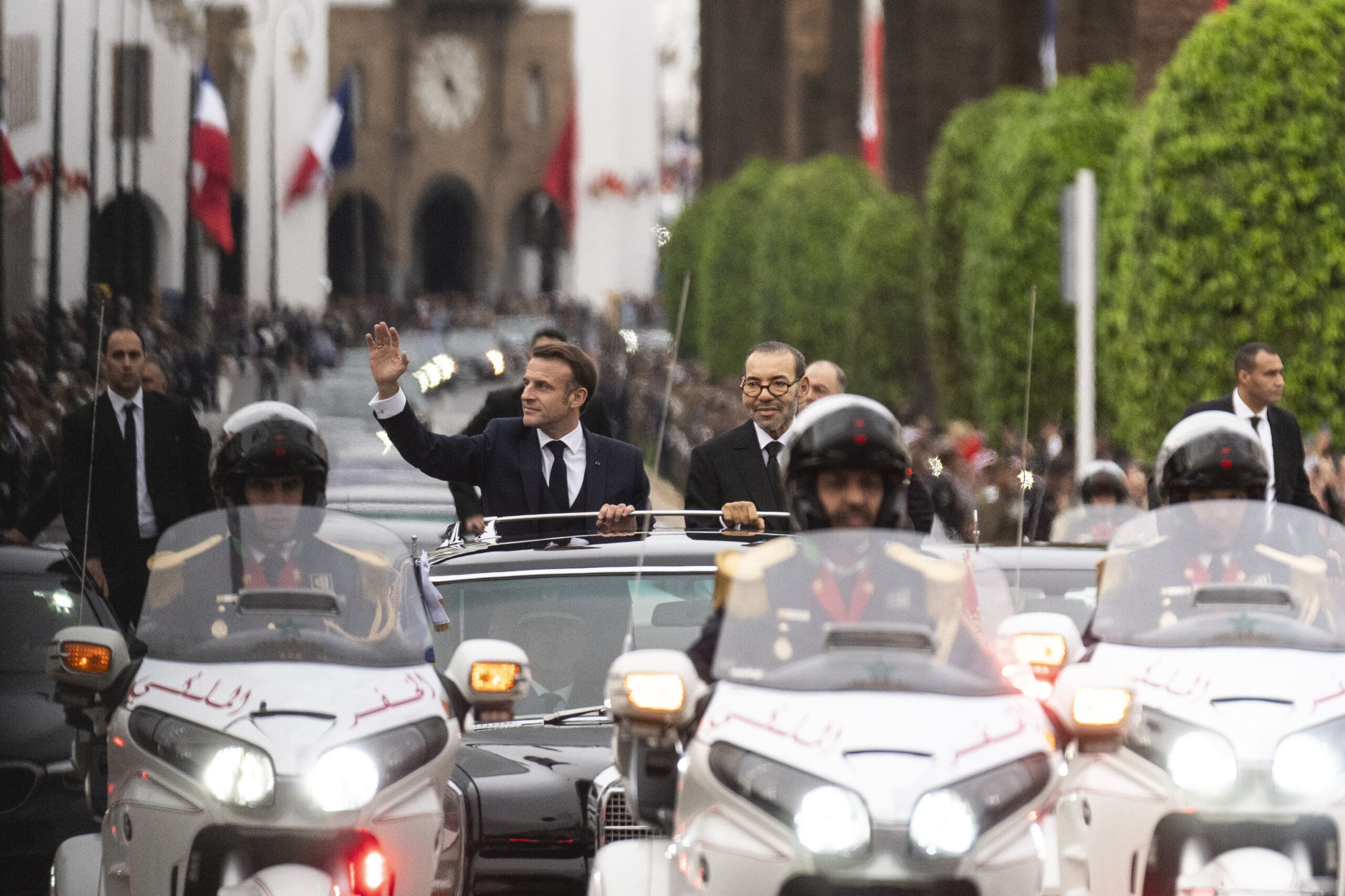
Morocco’s king Mohammed VI, right, and French president Emmanuel Macron wave to crowds during the latter’s official visit to Morocco, in the capital Rabat, Monday, Oct. 28, 2024. (AP Photo/Mosa’ab Elshamy)
RABAT — Morocco agreed to buy high-speed trains from French company Alstom ALSO.PA on Monday, one of a series of business deals signed during President Emmanuel Macron’s state visit to the kingdom as the two countries turn the page on years of diplomatic tensions.
Paris and Rabat have had a difficult relationship in the past three years – notably over immigration issues and over the disputed territory of Western Sahara, which Morocco wants the international community to recognise as Moroccan.
After walking a tightrope to avoid angering Morocco’s rival Algeria, Macron backed Morocco’s position on Western Sahara in July, paving the way for the reconciliation. Macron is travelling with a dozen ministers and some 40 business executives.
READ: Morocco’s tribeswomen see facial tattoo tradition fade
In a rare honor to a foreign guest, King Mohammed VI, walking with a cane, came to greet Macron and his wife Brigitte at the airport on Monday, before the contract-signing ceremony at the Moroccan royal palace.
France was rewarded with a deal between Morocco’s rail operator ONCF and France’s Alstom to acquire 12 high-speed carriages and an option for a further six as Morocco seeks to expand an existing line farther south to Marrakech by 2030.
French energy firms Engie ENGIE.PA and EDF also signed deals to expand in the renewable energy sector, while TotalEnergies TTEF.PA signed a deal on hydrogen, although no amount was immediately disclosed. Shipping company CMA CGM also announced investments in a Moroccan port terminal.
French officials said contracts for both sides were worth more than 10 billion euros ($10.8 billion) overall but did not disclose a precise breakdown.
READ: France cuts benefits for absentee state workers
France was also hoping the visit will resolve tensions over immigration, which is a particularly hot issue in France, where the government is under pressure from right-wing parties to send back more unwanted migrants to countries like Morocco.
In 2021, Paris had decided to drastically cut the number of visas it awards North African visitors, in a bid to pressure these countries to facilitate the return of those migrants.
The policy had deeply aggrieved Morocco, and France eventually ended visa restrictions in 2022.